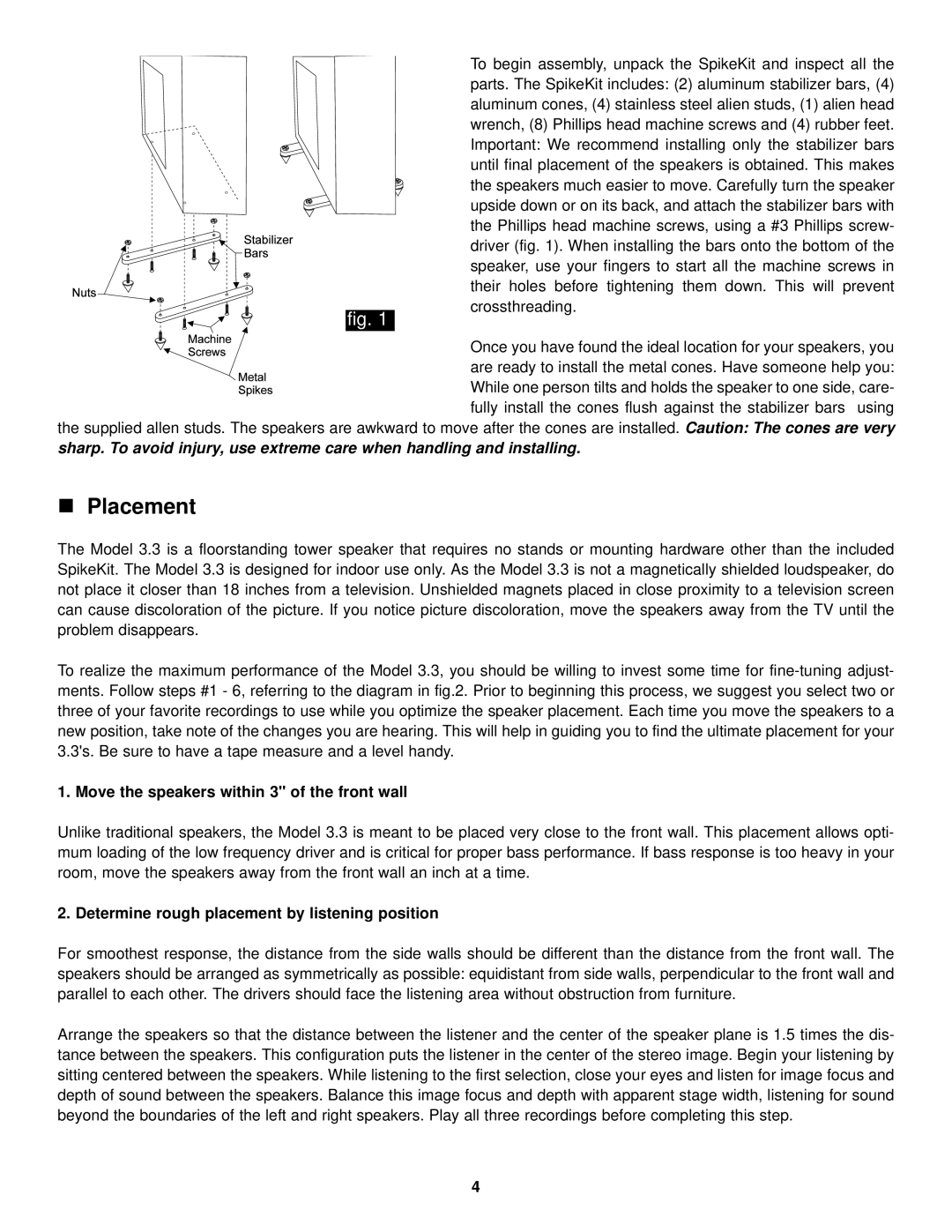
fig. 1
To begin assembly, unpack the SpikeKit and inspect all the parts. The SpikeKit includes: (2) aluminum stabilizer bars, (4) aluminum cones, (4) stainless steel alien studs, (1) alien head wrench, (8) Phillips head machine screws and (4) rubber feet. Important: We recommend installing only the stabilizer bars until final placement of the speakers is obtained. This makes the speakers much easier to move. Carefully turn the speaker upside down or on its back, and attach the stabilizer bars with the Phillips head machine screws, using a #3 Phillips screw- driver (fig. 1). When installing the bars onto the bottom of the speaker, use your fingers to start all the machine screws in their holes before tightening them down. This will prevent crossthreading.
Once you have found the ideal location for your speakers, you are ready to install the metal cones. Have someone help you:
![]()
![]()
![]()
![]() While one person tilts and holds the speaker to one side, care- fully install the cones flush against the stabilizer bars using the supplied allen studs. The speakers are awkward to move after the cones are installed. Caution: The cones are very
While one person tilts and holds the speaker to one side, care- fully install the cones flush against the stabilizer bars using the supplied allen studs. The speakers are awkward to move after the cones are installed. Caution: The cones are very
sharp. To avoid injury, use extreme care when handling and installing.
!Placement
The Model 3.3 is a floorstanding tower speaker that requires no stands or mounting hardware other than the included SpikeKit. The Model 3.3 is designed for indoor use only. As the Model 3.3 is not a magnetically shielded loudspeaker, do not place it closer than 18 inches from a television. Unshielded magnets placed in close proximity to a television screen can cause discoloration of the picture. If you notice picture discoloration, move the speakers away from the TV until the problem disappears.
To realize the maximum performance of the Model 3.3, you should be willing to invest some time for
1. Move the speakers within 3" of the front wall
Unlike traditional speakers, the Model 3.3 is meant to be placed very close to the front wall. This placement allows opti- mum loading of the low frequency driver and is critical for proper bass performance. If bass response is too heavy in your room, move the speakers away from the front wall an inch at a time.
2. Determine rough placement by listening position
For smoothest response, the distance from the side walls should be different than the distance from the front wall. The speakers should be arranged as symmetrically as possible: equidistant from side walls, perpendicular to the front wall and parallel to each other. The drivers should face the listening area without obstruction from furniture.
Arrange the speakers so that the distance between the listener and the center of the speaker plane is 1.5 times the dis- tance between the speakers. This configuration puts the listener in the center of the stereo image. Begin your listening by sitting centered between the speakers. While listening to the first selection, close your eyes and listen for image focus and depth of sound between the speakers. Balance this image focus and depth with apparent stage width, listening for sound beyond the boundaries of the left and right speakers. Play all three recordings before completing this step.
4
